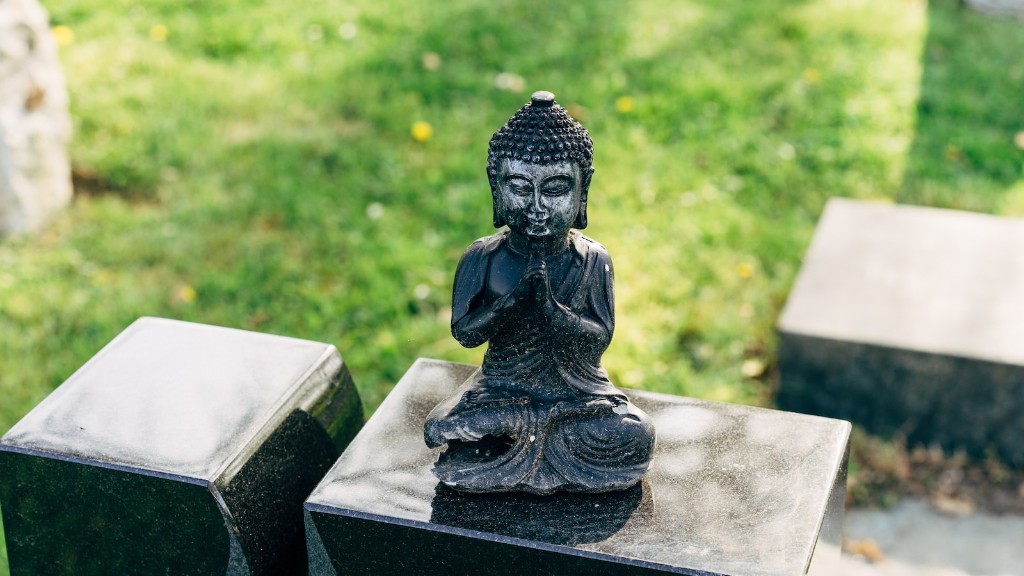What Is Enlightenment In Hinduism
Enlightenment in Hinduism refers to a state of spiritual illumination or awakening. It is believed by the followers of Hinduism that enlightenment occurs when one is freed from the cycle of birth and death, and is no longer bound by the limitations of the mortal body. Enlightenment is the ultimate goal of the individual in Hinduism, and it is seen as the realization of one’s true, divine identity.
In Hinduism, enlightenment is described as the experience of oneness with the divine consciousness. It is characterized by a state of pure awareness, understanding, and intuitive perception of the world. It is said that in this state, one can access the innermost depths of the soul in order to become enlightened. This inner awareness and knowledge can allow one to transcend their physical and material limitations, enabling them to experience the divine power and unity of all existence, both within and beyond themselves.
Achieving enlightenment is the ultimate goal of the Hindu path and is seen as the pinnacle of spiritual realization. In Hinduism, one is thought to accumulate spiritual knowledge and wisdom through the practice and study of various spiritual paths, such as yoga, meditation, and Vedic philosophy. It is also believed that this knowledge can be acquired through the guidance of enlightened spiritual masters and teachers.
It is believed that enlightenment requires a mental and spiritual shift within the individual, which is often accompanied by physical changes such as profound peace, serenity and joy. Enlightenment is thought to result in the individual’s abandonment of desire, the realization of truth, and becoming one with the divine. This is often described as a mystical experience that transcends physical, mental and spiritual limitations, resulting in a profound sense of inner knowledge and spiritual connectedness.
In Hinduism, enlightenment is a state of liberation and transformation. Seeing oneself and the world from a higher perspective, one is no longer bound by material desires and instead is free to live and express their true, authentic self. It is said that by recognizing one’s connection to the divine, one can experience profound joy, peace and freedom.
How To Pursue Enlightenment
In Hinduism, one of the main strategies for achieving enlightenment is the practice of yoga and meditation, which is an integral part of the Hindu system of spiritual practice. Yoga and meditation are meant to bring the individual into greater alignment with the divine and awaken the higher-self. Additionally, Vedic spiritual teachings, such as the Upanishads and the Bhagavad Gita are often used as guides to help the individual understand and progress along their spiritual path.
Through this practice, one can gain a deeper understanding of the divine and connect with the highest power of the universe. With the guidance of a spiritual teacher, an individual can learn how to focus their attention on the divine and gradually progress in their spiritual quest. It is believed that with enough dedication and perseverance, one can attain a state of enlightened consciousness, which is often referred to as moksha or liberation.
Enlightenment is a process of inner transformation, and it is understood to take time, patience and dedication to achieve. It is important that individuals have a clear understanding of their spiritual goals and desire to pursue them. Additionally, it is beneficial to have the guidance of a knowledgeable and experienced teacher who can provide support and guidance along the path.
Benefits of Enlightenment
The ultimate goal of enlightenment in Hinduism is liberation and freedom from the cycle of birth and death. When one reaches this point of spiritual progress, they are said to become enlightened and to experience an indescribable state of peace and joy. This state is often characterized by inner calm, awareness and wisdom, as well as physical and emotional wellbeing.
It is said that with this liberation, one can live in alignment with the divine and experience a profound understanding of the true nature of reality. Furthermore, having achieved enlightenment, one can then become a source of enlightenment for others and help guide them in their own spiritual journeys.
Enlightenment In Different Hindu Texts
In many Hindu texts, enlightenment is described in detail. The Bhagavad Gita, for example, mentions that enlightenment is the ultimate goal of spiritual practice and can be attained through renunciation of worldly desires, detachment from material things, and a focus on the divine. The Upanishads also emphasize the importance of studying scriptures, understanding the sacred teachings, and meditating on the ultimate truth as ways to gain enlightenment.
In addition, many of the popular Hindu gods are believed to be embodiments of enlightened consciousness, such as Lord Vishnu, Lord Shiva and Lord Krishna. Through these stories, Hindus are encouraged to seek out their own inner divinity and strive for liberation.
Reaching Enlightenment
In Hinduism, enlightenment is the ultimate goal of the spiritual journey. Through meditation and other spiritual practices, one can gradually become free from attachment to material objects and desires and connect with the divine. With the help of an experienced teacher, individuals can learn how to tap into their higher self and become liberated. The process of enlightenment is an ongoing journey, and with enough dedication, effort and guidance, one can eventually reach a state of moksha, or liberation.
Finding The Right Path
In Hinduism, there are multiple paths one can take in order to reach enlightenment. It is important that individuals take the time to explore the different paths and find one that best resonates with them. Additionally, it is beneficial to learn from a qualified teacher who can provide guidance and support along the way.
Finding the right path and teacher can be a challenging but ultimately rewarding process. Through dedicated practice and study, individuals can gain the knowledge, wisdom, and insight they need to move forward on their spiritual journey and ultimately attain the state of enlightenment.
Integrating Enlightenment Into Daily Life
Once an individual has attained enlightenment, it is important for them to integrate this new understanding into their daily life. This may mean changing certain habits, attitudes and beliefs, and learning to live in harmony and peace with others. Furthermore, it is important for the individual to continue to learn and grow, and to find ways to express their newfound understanding of the divine.
It is also important to remember that enlightenment is ongoing and ever-changing, and that the individual must continually work to deepen their understanding and experience of the divine. By incorporating spirit-led practices and cultivating a sense of love and oneness, one can become empowered and experience true liberation.



